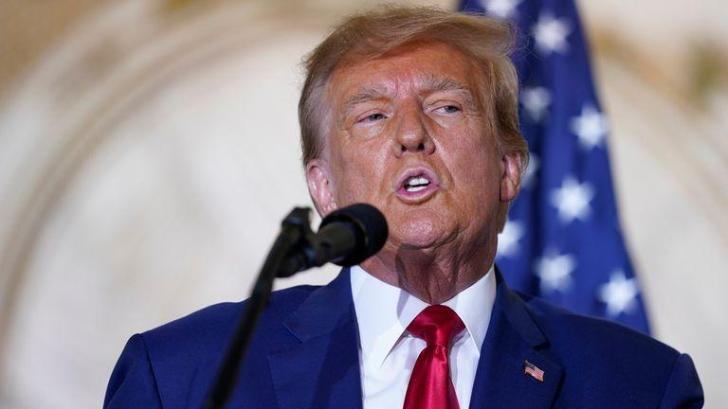News / National
'Trump Presidency to hurt Zimbabwe's trade, investments'
11 Nov 2024 at 07:13hrs |
17 Views

Zimbabwe's trade and investment prospects could face significant challenges following United States President-elect Donald Trump's proposed tariff policies, according to an analysis by FBC Securities.
Trump, who recently made a political comeback by defeating Democratic Party candidate Kamala Harris, has ushered the Republican Party into control of both the Senate and the House of Representatives. This shift in power is expected to give Trump the leverage to pass much of his economic agenda, including his controversial plan to impose high tariffs on nations with which the U.S. has trade imbalances.
Trump's previous term as president, from 2017 to 2021, saw the implementation of similar trade measures aimed at reducing America's trade deficit. The proposed higher tariffs on global trade could have a negative effect on Zimbabwe's key exports, such as minerals, potentially worsening the country's foreign currency liquidity issues, FBC Securities warned.
The firm's analysis highlights the potential for a stronger U.S. dollar, which could drive up the cost of imports from dollar-denominated markets. Zimbabwe, heavily dependent on foreign goods, energy, and raw materials, would be particularly vulnerable. With statistics showing that between 70% and 80% of local transactions are conducted in U.S. dollars, the impact of a stronger dollar would be felt deeply in Zimbabwe's economy.
Moreover, FBC Securities noted that higher U.S. interest rates and a stronger dollar could redirect foreign capital away from Zimbabwe's equities market, particularly affecting sectors like mining and banking that rely heavily on foreign investment. The firm also pointed out that Zimbabwe's foreign debt, primarily denominated in U.S. dollars, would become more expensive to service if the dollar strengthens, exacerbating the country's financial strain.
Zimbabwe's public debt, reported to be around US$21 billion as of June, includes significant arrears, and any increase in the value of the dollar would raise the costs of repaying that debt.
In addition to the economic challenges posed by Trump's tariff policies, FBC Securities also highlighted the potential negative effects of stricter U.S. immigration policies. Zimbabwe's large diaspora community contributes between US$1.5 billion and US$2 billion annually in remittances, a vital source of foreign currency for the country. Stricter immigration laws could suppress these remittances, putting additional pressure on Zimbabwe's foreign exchange reserves.
While FBC Securities noted that Trump's foreign policy toward Zimbabwe would likely continue in the same vein as his previous administration, the firm does not foresee significant shifts in U.S. policy toward the country. The U.S. has maintained targeted sanctions on Zimbabwe, and no major policy initiatives are expected to be introduced under Trump's new administration.
As Zimbabwe braces for the potential consequences of these developments, the country's trade and investment climate faces increasing uncertainty, with the possibility of escalating economic challenges should Trump's policies be fully implemented.
Trump, who recently made a political comeback by defeating Democratic Party candidate Kamala Harris, has ushered the Republican Party into control of both the Senate and the House of Representatives. This shift in power is expected to give Trump the leverage to pass much of his economic agenda, including his controversial plan to impose high tariffs on nations with which the U.S. has trade imbalances.
Trump's previous term as president, from 2017 to 2021, saw the implementation of similar trade measures aimed at reducing America's trade deficit. The proposed higher tariffs on global trade could have a negative effect on Zimbabwe's key exports, such as minerals, potentially worsening the country's foreign currency liquidity issues, FBC Securities warned.
The firm's analysis highlights the potential for a stronger U.S. dollar, which could drive up the cost of imports from dollar-denominated markets. Zimbabwe, heavily dependent on foreign goods, energy, and raw materials, would be particularly vulnerable. With statistics showing that between 70% and 80% of local transactions are conducted in U.S. dollars, the impact of a stronger dollar would be felt deeply in Zimbabwe's economy.
Moreover, FBC Securities noted that higher U.S. interest rates and a stronger dollar could redirect foreign capital away from Zimbabwe's equities market, particularly affecting sectors like mining and banking that rely heavily on foreign investment. The firm also pointed out that Zimbabwe's foreign debt, primarily denominated in U.S. dollars, would become more expensive to service if the dollar strengthens, exacerbating the country's financial strain.
Zimbabwe's public debt, reported to be around US$21 billion as of June, includes significant arrears, and any increase in the value of the dollar would raise the costs of repaying that debt.
In addition to the economic challenges posed by Trump's tariff policies, FBC Securities also highlighted the potential negative effects of stricter U.S. immigration policies. Zimbabwe's large diaspora community contributes between US$1.5 billion and US$2 billion annually in remittances, a vital source of foreign currency for the country. Stricter immigration laws could suppress these remittances, putting additional pressure on Zimbabwe's foreign exchange reserves.
While FBC Securities noted that Trump's foreign policy toward Zimbabwe would likely continue in the same vein as his previous administration, the firm does not foresee significant shifts in U.S. policy toward the country. The U.S. has maintained targeted sanctions on Zimbabwe, and no major policy initiatives are expected to be introduced under Trump's new administration.
As Zimbabwe braces for the potential consequences of these developments, the country's trade and investment climate faces increasing uncertainty, with the possibility of escalating economic challenges should Trump's policies be fully implemented.
Source - newsday
Join the discussion
Loading comments…


































